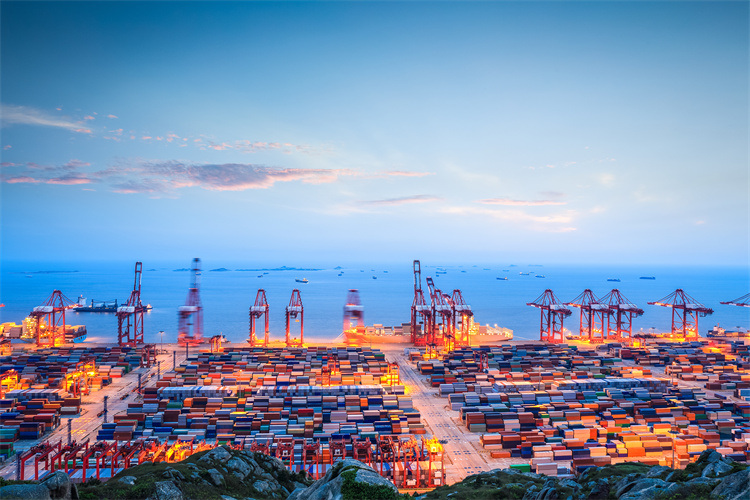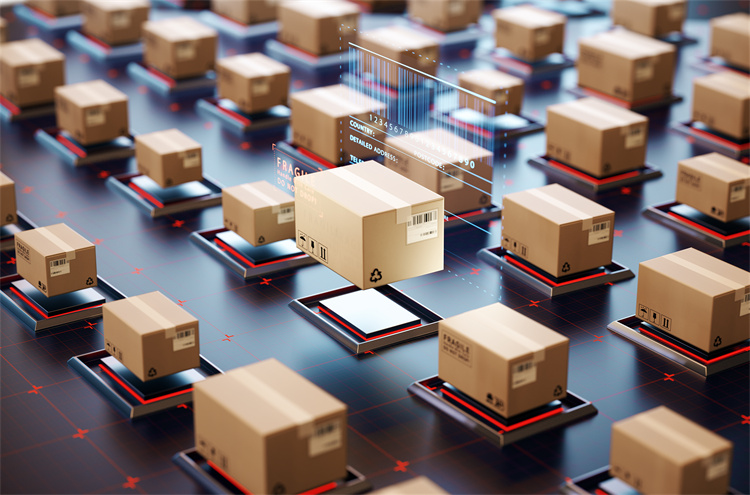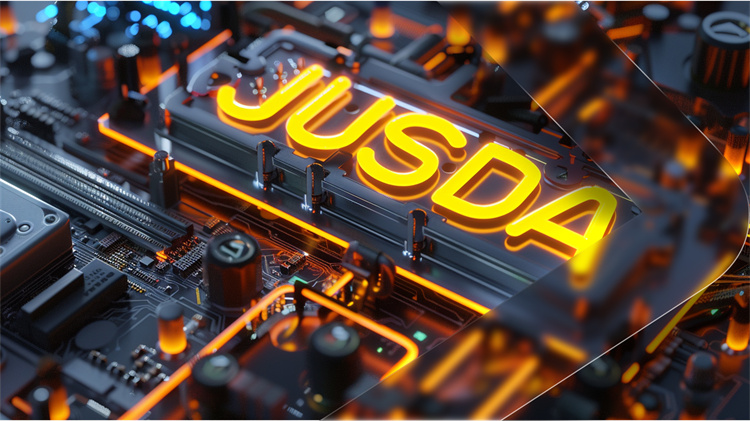How Technology and Cooperation are Reshaping Global Customs Processes

Efficient customs processes play a crucial role in facilitating international trade. With cross-border trade volume increasing by 25% over the past decade and expected to more than double by 2024, customs authorities face significant challenges. Technology and cooperation emerge as vital solutions. AI-based tools enhance data accuracy and expedite clearance, reducing tax evasion and non-compliance. These advancements not only streamline operations but also foster a more interconnected world, reshaping Global Customs for the better.
The Role of Technology in Global Customs

Automation and AI
Automation and artificial intelligence (AI) have become pivotal in transforming Global Customs processes. They streamline operations by reducing manual interventions, which often lead to delays and errors. Customs authorities now use AI tools to monitor trade volumes, which have grown significantly. For instance, the US imports industry was valued at $3.39 trillion in 2021, making it the largest importer globally. AI helps manage this vast volume by identifying anomalies in invoices, thus boosting investigation success rates. By focusing on suspect invoices rather than random checks, customs can enhance compliance and efficiency.
AI also enhances accuracy and speed in customs operations. It simplifies compliance by automating VAT filings and customs clearance. Real-time updates to regulations ensure that customs authorities remain informed and responsive. The data captured by customs, such as cargo manifests and electronic invoices, holds immense value. AI, machine learning, and big data tools process this information to identify patterns and potentially risky operations, thereby improving border risk management.
Blockchain Technology
Blockchain technology plays a crucial role in improving transparency within Global Customs. It provides a secure way to exchange data among manufacturers, retailers, rights holders, and importers. A 2020 CBP proof of concept demonstrated blockchain's potential in protecting intellectual property rights on American imports. By reducing the need for physical examinations, blockchain enhances the efficiency of customs processes.
Securing data exchange is another significant advantage of blockchain technology. It ensures that all parties involved in international trade have access to accurate and tamper-proof information. This transparency fosters trust among stakeholders and reduces the likelihood of fraud. As a result, customs authorities can focus on facilitating legitimate trade while minimizing risks.
Internet of Things (IoT)
The Internet of Things (IoT) revolutionizes customs processes by enabling real-time tracking of cargo. IoT devices monitor shipments throughout their journey, providing customs authorities with valuable data. This real-time information allows for better decision-making and enhances the overall efficiency of customs operations.
Inventory management also benefits from IoT technology. By integrating IoT devices into supply chains, customs can track inventory levels and movements more accurately. This capability reduces the risk of stockouts or overstocking, ensuring that goods move smoothly across borders. IoT's impact on customs processes highlights the importance of adopting modern technologies to meet the demands of a rapidly evolving global trade environment.
The Importance of International Cooperation in Global Customs

International cooperation plays a vital role in enhancing Global Customs processes. By working together, countries can create more efficient and streamlined systems that benefit global trade.
Harmonization of Regulations
Standardizing procedures
Countries often face challenges due to differing customs regulations. Standardizing procedures helps create a unified approach. This alignment reduces confusion and delays at borders. For example, the Belt and Road Initiative emphasizes customs cooperation to promote trade facilitation. By adopting common standards, countries can ensure smoother transactions and reduce administrative burdens.
Reducing trade barriers
Harmonization also focuses on reducing trade barriers. When countries align their customs regulations, they minimize obstacles that hinder trade. This cooperation fosters a more open and accessible market. Businesses benefit from reduced costs and increased efficiency. The shift towards a systems-based approach for customs inspections exemplifies how technology and cooperation can enhance Global Customs.
Collaborative Platforms
Sharing best practices
Collaborative platforms enable countries to share best practices. These platforms provide opportunities for customs authorities to learn from each other. By exchanging knowledge, they can adopt innovative solutions and improve their operations. Digital Customs initiatives highlight the importance of leveraging technology to optimize processes. Sharing insights leads to more effective and responsive customs systems.
Joint training programs
Joint training programs further strengthen international cooperation. These programs equip customs officials with the skills needed to handle modern challenges. Training focuses on new technologies and compliance requirements. By participating in these programs, customs authorities can enhance their capabilities. This collaboration ensures that Global Customs remain adaptable and efficient in a rapidly changing world.
International cooperation in Global Customs not only streamlines processes but also fosters a more interconnected global economy. By harmonizing regulations and utilizing collaborative platforms, countries can overcome challenges and seize opportunities in international trade.
Challenges and Solutions
Technological Barriers
Integration issues
Global Customs processes face significant technological barriers. Integration issues arise when different systems and technologies must work together. Customs authorities often struggle to connect new digital solutions with existing infrastructure. This lack of compatibility can slow down operations and create inefficiencies. For example, transitioning from paper-based procedures to electronic operations requires careful planning and execution. Customs must ensure that all systems communicate effectively to maintain a seamless flow of information.
Cost implications
Implementing advanced technologies in Global Customs involves substantial costs. Many customs authorities operate with limited budgets, making it challenging to invest in new systems. The initial expense of technology adoption can deter some countries from modernizing their customs processes. However, the long-term benefits, such as increased efficiency and reduced errors, often outweigh these costs. By focusing on digital transformation, customs can enhance operational performance and support economic growth.
Political and Economic Factors
Policy alignment
Political factors play a crucial role in shaping Global Customs processes. Policy alignment between countries is essential for smooth cross-border trade. Differences in regulations can lead to confusion and delays. Customs authorities must work together to harmonize policies and create a unified approach. This cooperation ensures that goods move efficiently across borders, benefiting both businesses and consumers.
Economic disparities
Economic disparities between countries also impact Global Customs. Wealthier nations may have access to advanced technologies and resources, while developing countries might struggle to keep up. This imbalance can create challenges in maintaining consistent customs standards worldwide. To address these disparities, international cooperation and support are vital. By sharing knowledge and resources, countries can work towards a more equitable and efficient customs environment.
JUSDA's Role in Reshaping Global Customs
JusLink Intelligent Supply Chain
JUSDA plays a pivotal role in reshaping Global Customs through its JusLink Intelligent Supply Chain. This platform enhances supply chain visibility by integrating cutting-edge technologies like IoT, cloud computing, and big data. These technologies allow stakeholders to monitor shipments in real-time, ensuring that goods move efficiently across borders. By providing comprehensive data insights, JusLink helps customs authorities make informed decisions, reducing delays and improving the accuracy of customs processes.
Facilitating real-time collaboration stands as another significant advantage of the JusLink platform. It connects various parties involved in the supply chain, including manufacturers, retailers, and customs officials. This connectivity fosters seamless communication and coordination, which are essential for efficient customs operations. By enabling stakeholders to share information instantly, JusLink minimizes the risk of errors and enhances the overall efficiency of Global Customs.
Industry-Specific Solutions
JUSDA offers industry-specific solutions that cater to the unique needs of diverse sectors. These tailored services ensure that businesses can navigate the complexities of Global Customs with ease. For instance, JUSDA provides specialized customs clearance services for industries such as electronic manufacturing, automotive, and medical health. These services include one-stop import and export customs clearance, commodity classification, and port inspection, among others. By addressing the specific requirements of each sector, JUSDA helps businesses streamline their customs processes and reduce compliance risks, unlocking success in cross-border trade.
Leveraging technology for efficiency remains a core focus of JUSDA's approach to Global Customs. The company utilizes advanced tools like intelligent document preparation and compliance management to automate and optimize customs operations. These technologies reduce manual interventions, which often lead to errors and delays. By adopting a technology-driven approach, JUSDA enhances the efficiency of customs processes, allowing businesses to focus on their core operations without worrying about compliance challenges.
In conclusion, JUSDA's innovative solutions and commitment to leveraging technology play a crucial role in reshaping Global Customs. By enhancing supply chain visibility, facilitating real-time collaboration, and offering tailored services, JUSDA helps businesses navigate the complexities of international trade with confidence and efficiency.

JUSDA Solutions
To provide you with professional solutions and quotations.
Technology and cooperation have significantly transformed Global Customs processes. They enhance efficiency, streamline operations, and improve accuracy. Automation and AI simplify compliance, while blockchain ensures secure data exchange. The Internet of Things provides real-time tracking, optimizing inventory management. International cooperation harmonizes regulations, reducing trade barriers and fostering a more interconnected global economy.
Looking ahead, the future of Global Customs appears promising. Digitalization will continue to make inroads, driving further modernization. Businesses and customs authorities must embrace innovation and collaboration to adapt to evolving trade patterns. By leveraging new technologies, they can boost digital transformation and streamline logistics.
A call to action: Stakeholders should prioritize continued innovation and cooperation. Embracing these advancements will ensure that Global Customs processes remain efficient and responsive to the demands of international trade.
See Also
Revealing Cross-Border E-commerce: Innovations in Supplier Partnerships
Adapting to Technology: Navigating Changes in Supply Chain Solutions
Addressing Global Challenges: Solutions for Supply Chain Expansion
Digital Technology in Logistics: Clearing the Way for the Future
The Impact of Supply Chain Innovation: Revolutionizing Logistics
